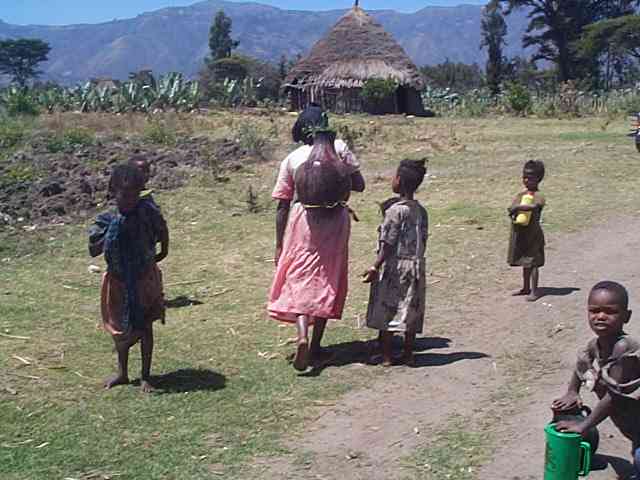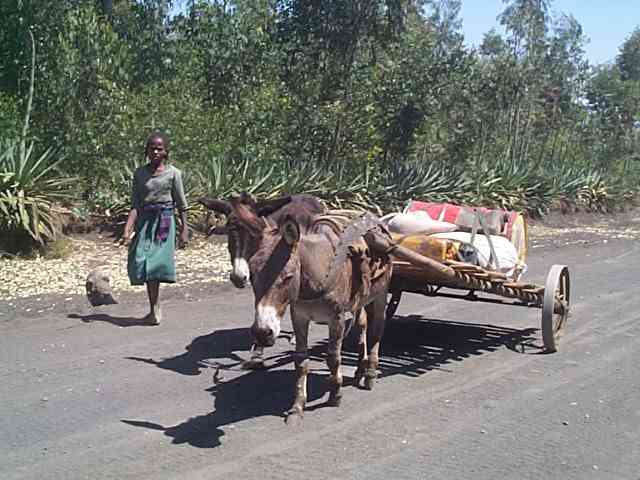|
The Ethiopian Rural Travel and Transport Programme
Front Page
A Paper by Brian S. Barr C. Eng. FICE FIHT
November 2001
Home
Acknowledgements
Text
Synopsis
There are few immediate benefits experienced by the majority of the rural population in developing countries from the construction of new roads. The implementation of a Rural Travel and Transport Programme within Ethiopia is aimed at reducing the transport burden, particularly for women. However, the problems to be overcome are not just transport problems. Solutions must be found for a range of problems to ensure that the transport burden is reduced and sustainability of the interventions is achieved.

In rural areas, women and children walk up to six hours to collect water. Most people collect water from shallow, unprotected ponds which they share with animals. Other people collect water from shallow wells. Both of these sources are subject to contamination as rain water washes waste from surrounding areas into the source. They then carry the large clay jugs of water back to their villages. These jugs can weigh up to 40 pounds! Often, young children are left home by themselves or with a slightly older sibling while their mother and older siblings collect water.

Donkey carts are one way of reducing the transport burden. They are an efficient means of transporting water over greater distances thereby giving better options for collecting cleaner water. These activities can be carried out by women who are traditionally responsible for collecting water for the family.
Text
|